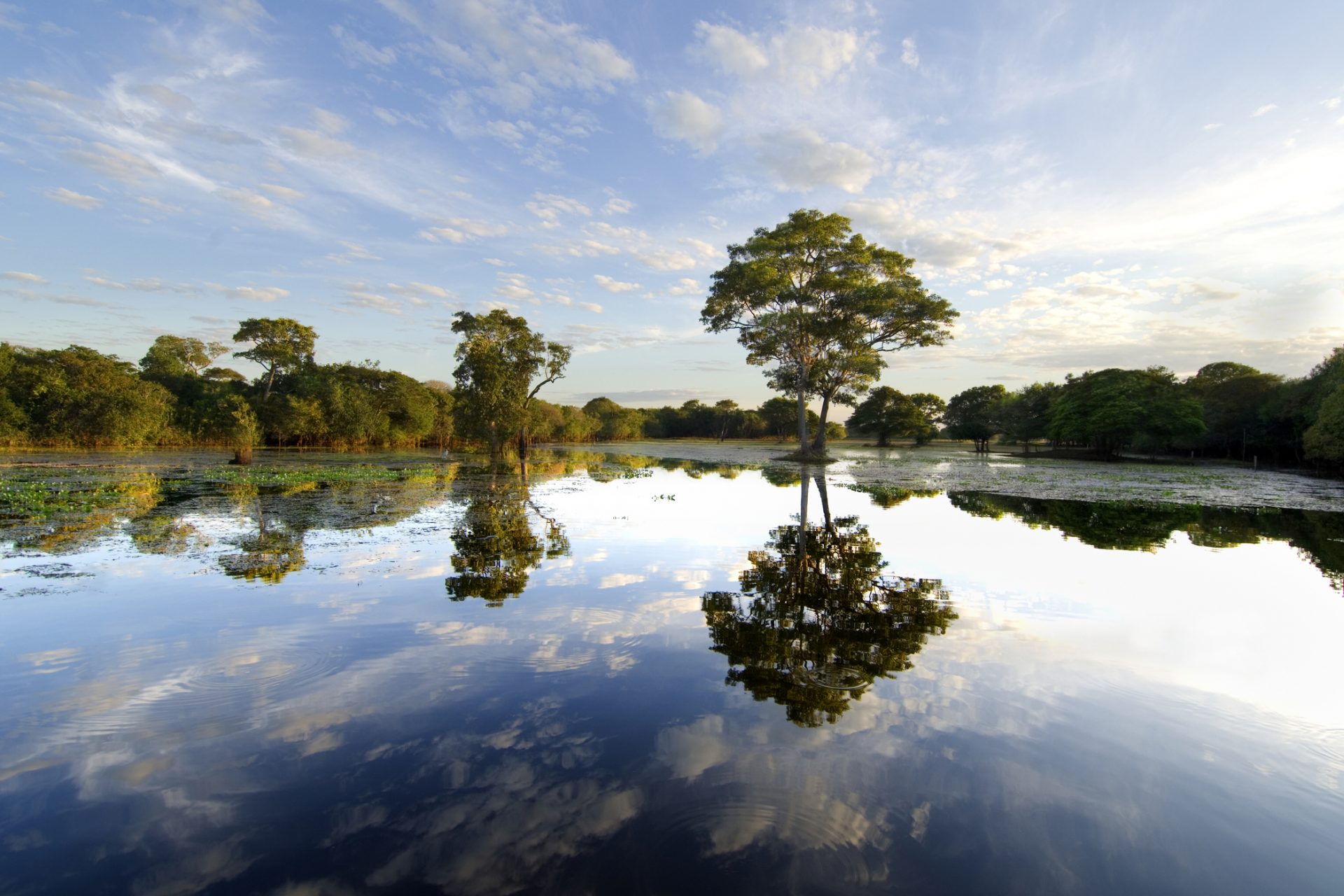20 things you probably didn't know about Germany
Germany is renowned for the quality of its cars. Some may even know that its capital Berlin has a festive underground scene as well as impressive monuments to remember recent history. Still, the country has kept plenty of secrets from the rest of the world. Discover a selection of 20 unusual facts about Germany!
Despite a high population density, the country is home to countless forests. In fact, a third of the territory is covered by them! Germany has been spared policies of extensive deforestation and the people are very fond of long hikes in the woods.
Speaking of forests, in the fall of 1992, authorities discovered a highly inappropriate symbol in a German wood one day. They noticed that a group of trees was forming a swastika. How was this signal made? Biologists assume that larches, whose leaves turn yellow much faster than those of the surrounding pines, had been planted there by neo-Nazis. They formed a symbol that was visible from the sky. The trees were felled to avoid any neo-Nazi gatherings at the site.
Photo: @France TV Info
Another vestige of the Nazi era, several hundred bunkers and miles of underground tunnels still exist under the current city of Berlin. But the majority of these infrastructures are inaccessible because of the risk of landslides or flooding.
Many Berliners fled the capital in the late 1940s, before the construction of the Berlin Wall to make their living in the west. If we add the city's inhabitants who died during World War II, Berlin has a lower population now (3.7 million) than it had in 1933 (4.3 at the time).
Few people know it, but Fanta is a German invention dating back to the beginning of World War II. As the war made foreign supplies impossible to get, German engineers from Coca-Cola invented a substitute drink, Fanta, so that the American company could continue their activities in the country.
A country with a rich history, Germany has around 25,000 castles (the exact number is not known). One finds some spectacular ones in the state of Saxony but also in the valley of the Rhine: between the towns of Koblenz and Bingen alone, a distance of 37 miles, one can count 40 castles. A delight to history buffs!
There are nearly 2.5 million houses with timber fronts in Germany, the highest total in the world. The old towns that were not destroyed during World War II derive their picturesque character from these facades.
Birkenstocks are a type of sandal, 'Made in Germany' and renowned for their comfort and their solidity. But the Germans tend to wear them with socks, a fashion practice only moderately appreciated in other countries…
You read that right: every fall, Germany hosts a championship of this rather special sport. The public can then admire the competitors who row on giant pumpkins in the middle of the river.
Photo: @threetulipsandatexan
Another German sports curiosity: the 'Fingerhakeln' championships see competitors intertwine their fingers and pull very hard until one of them lets go. Surely you have to exercise your fingers all year long to be able to participate!
Germans are crazy about cars and speed is unlimited on certain stretches of the freeway. However, authorities debate imposing limitations, both for the safety of drivers and to limit pollution.
The city of Reutlingen in southern Germany is home to the narrowest street in the world. The Spreuerhofstraße is only 31 centimeters (12'2 inch) wide at its narrowest point. Not very convenient for cycling - let alone driving!
Another architectural record in Germany: the Ulm Cathedral has the tallest bell tower in the world. The building culminates at 161 meters (528 feet) high. Dizzying!
German law recognizes the right of every individual to regain his or her freedom. If a prisoner manages to escape, he will be required to serve the remainder of his sentence, but it will not be increased because of the escape - except for any crimes or misdemeanors they may have committed while they were out.
The longest word in the German language has 63 letters:
"Rindfleischetikettierungsüberwachungsaufgabenübertragungsgesetz."
It stands for "Law on the Transfer of Beef Labeling Monitoring Obligations." Enjoy your lunch!
The city of Wuppertal, near Cologne, has a metro line that's suspended above the void. An original way to make your daily trips.
Do you know Adolf and Rudolf Dassler? Probably not, and yet, the first was the founder of the sports equipment manufacturer Adidas in the 1920s. The brand name is a contraction of his first name and his surname. Rudolf, then, created his own company in the same sector: Puma. The two German giants are still among the world leaders in sportswear.
Germany has a large number of lakes (3,000 in the Brandenburg area alone) and they are also found inside some large cities. The country is also renowned for preserving high water quality: enough to create a strong bathing culture!
The old town of Regensburg (pictured) claims to have the oldest fast-food joint in the world. The very first street kitchen, which today is called 'Wurstkuchl,' was opened in the year 1146. It served food to the workers building the cathedral.
The Weihenstephaner brewery in Freising (Bavaria) has existed since 1040 and has never ceased its activity since its foundation. It won't be long before this brewery celebrates its millennium. Prost!
































